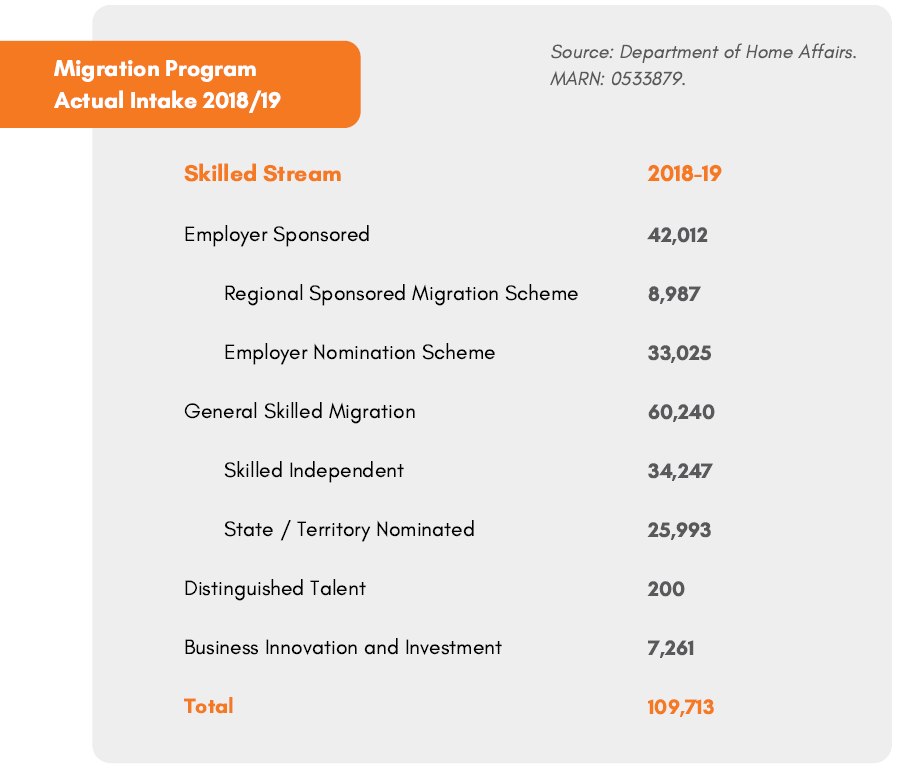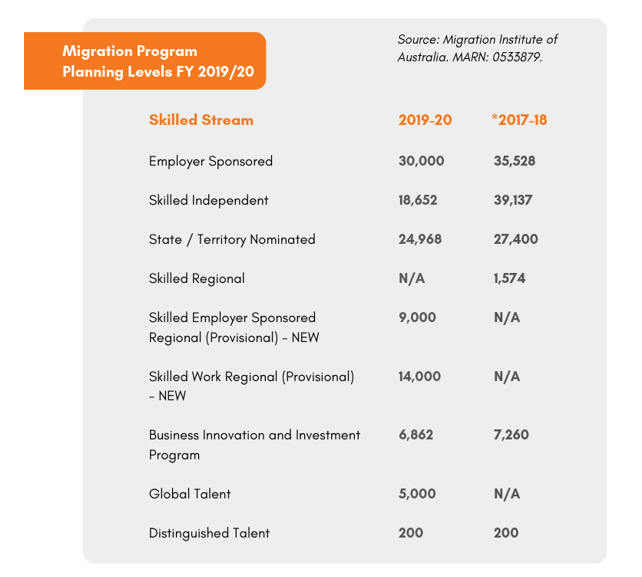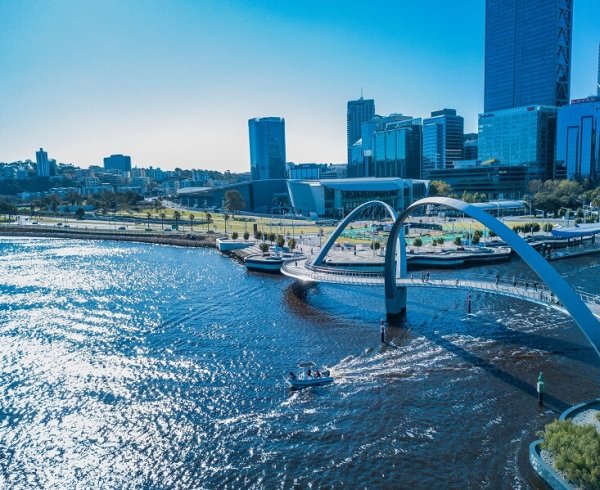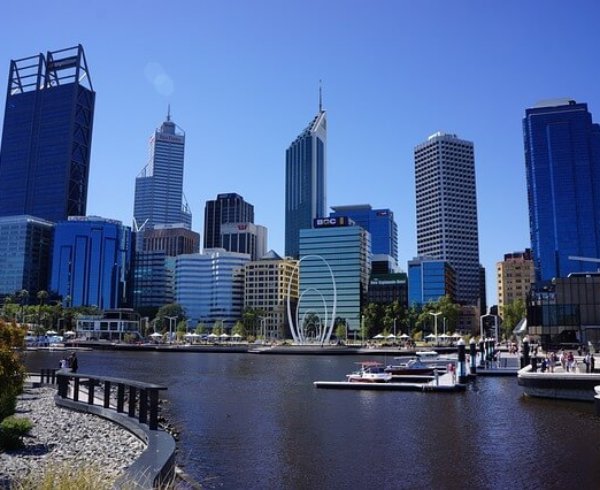Australia’s permanent migration intake has fallen to its lowest level since 2008 with only 160,323 permanent residence visas granted in 2018-19, according to recent Department of Home Affairs statistics. In 2019/20 and over the next four years, we can expect this figure to plateau with Australia’s new planning cap formally set at 160,000 permanent visas per year.
Here’s our insights on recent trends we have observed in Australian permanent residence, which have become more apparent since the Department of Home Affairs’ recent release of figures for permanent migration visas granted in 2018/19.

More restrictive employer-sponsored permanent residence options
Only 109,713 people were granted permanent residence through the skilled migration streams in 2018/19 compared to 123,567 people in 2016-17. Recent restrictions to skilled visas, such as the introduction of the Temporary Skills Shortage (TSS) Visa and less invitations being issued for General Skilled Migration are likely to have influenced this reduction.
Since the introduction of the Temporary Skills Shortage (TSS) Visa, only Medium-Term Stream TSS Visa holders are eligible for a permanent residence pathway. This restriction has reduced the number of people that can apply for employer-sponsored permanent residence.
Only 38,052 people were granted an employer-sponsored Subclass 186 Visa in 2016-17 compared to 33,025 people in 2018-19. Employer-sponsored permanent residence through the Subclass 186 Visa has only been allocated 30,000 places in 2019/20.
With the introduction of the new 494 Skilled Employer-Sponsored Regional Visa in November 2019, employers will have more opportunities to sponsor skilled migrants and it will be interesting to see if this helps to alleviate permanent residence restrictions that currently exist through TSS 482 Visa pathways.

Greater competition for permanent residence through Independent Skilled Migration
Less invitations have also been issued for General Skilled Migration Visas to reflect a smaller migration program and conditions are becoming more competitive to migrate independently without an employer sponsor. 67,857 people were granted a GSM Visa in 2016-17 compared to only 60,240 in 2018-19.
Planning levels for 2019/20 show only 57,620 placements have been allocated for GSM visas, which indicates we can expect to see a further reduction in invitations being issued this financial year.
It will be interesting to see how the introduction of the new Regional 494 Points-Tested Visa will attract migrants to live and work in regional areas. We may begin to see more migrants seeking to live and work regionally with the greater availability of permanent residence placements in regional areas.
A focus on regional permanent residence
This year, the size and composition of Australia’s skilled migration intake will also be influenced by the Government’s focus on encouraging migrants to live and work in regional areas. Skilled migrants who would like to live and work regionally may be able to claim more points for Independent Skilled Migration and the commencement of new Regional Skilled Visas in November 2019 will provide more opportunities to work and live in regional areas. The new 191 Visa will become available from November 2022 as a permanent residence visa option for skilled migrants on a Subclass 491 or 494 Regional Visa who have worked in a regional area for three years. Read our article about Australia’s policy direction towards regional migration.
A Sustained Family Migration Intake
The number of permanent residence Family Migration visas granted in 2018-19 has remained very similar to previous years at 47,247 placements. In 2019/20, a total of 47,732 visas have been planned for Family Migration placements. There is usually significant demand for permanent family visas such as Parent Visas, however the number of placements planned have remained very similar each year.
Increased rigour in the Government’s assessments of permanent residence applications
We can expect to see a sustained level of rigour being applied to Government assessments of permanent residence visa applications – particularly in relation to character/integrity, sponsorship compliance and the genuineness of applications. Applicants are required to provide substantial levels of evidence to support their application. This is likely to impact the rate of permanent residence visas granted and standard processing times.
Over 30 years of Australian visa and migration experience
Interstaff will keep you updated on Australia’s immigration plans and how they may impact you. Our Registered Migration Agents assist with all Australian visas and would be happy to advise of your migration options. Simply contact our team of migration agents on +61 8 9221 3388 (or National Free Call 1800 449 858) or [email protected]







